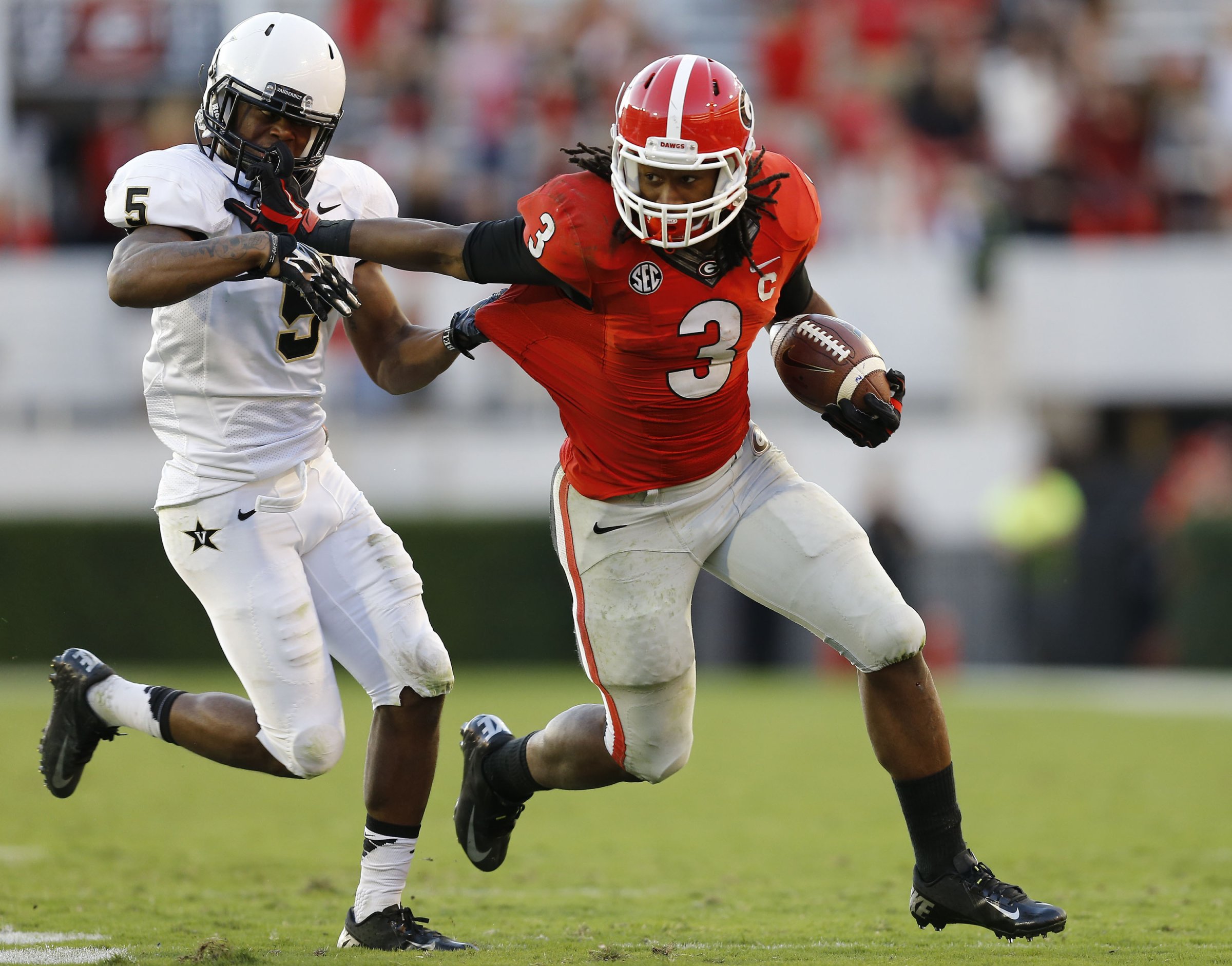
Another year, another Heisman contender’s season interrupted by stupidity.
In 2013, Texas A&M’s Johnny Manziel–then the defending Heisman trophy winner–became embroiled in a cash-for-autographs controversy. The National Collegiate Athletics Association and Texas A&M said “there was no evidence” that Manziel “received money in exchange for autographs,” but Manziel was still suspended, for the first half of A&M’s opener, for an “inadvertent violation regarding the signing of certain autographs.”
The Johnny Football contretemps was a flash point in the longstanding debate about whether college athletes deserve a fairer share of the expanding revenues flowing into college sports. Love him or hate him, why shouldn’t a player who was bringing in millions for Texas A&M be able to receive autograph money if someone wanted to give it to him? What Manziel was allegedly doing was hardly illegal, except in the weird world of college sports.
Turns out, Manziel didn’t get railroaded. After sitting out that first half, he had every opportunity to compete again for the Heisman (though he lost out to Florida State’s Jameis Winston, even after an excellent 2013 season). Looks like University of Georgia running back Todd Gurley won’t be as lucky. Georgia has suspended Gurley indefinitely; SI.com reported that “a person confirmed to Georgia’s compliance office this week he paid Gurley $400 to sign 80 items on campus in Athens, Ga., one day this spring. The person claimed to have a photo and video of Gurley signing the items, but neither the photo nor the video showed money changing hands.”
(MORE: TIME Cover – It’s Time To Pay College Athletes)
Gurley is a Heisman hopeful. Through Georgia’s first five games, the junior had rushed for 773 yards and averaged 8.2 yards per carry. Georgia is ranked 13th in the AP college football poll: the Bulldogs play at Missouri, ranked 23rd, tomorrow. Not only is Gurley a Heisman candidate, but the Bulldogs still have national championships hopes. So Gurley’s success, and the possible once-in-a-lifetime success of his teammates, are now in jeopardy because he may have received $400. Georgia’s football team generates $77.6 million in revenues, and $51.3 million in profit, according to federal data.
The whole system angers Chris Burnette, who finished his career as a Georgia offensive lineman last season and is now working as a financial planner in Atlanta while finishing his MBA. He vented his frustration on Twitter last night:
Burnette, a vocal supporter of compensation for athletes during his Georgia playing days, sounded exasperated when reached by phone. He says he’s not angry at Georgia, and has no firsthand knowledge of any violations Gurley may or may not have committed. “It’s just so frustrating,” says Burnette. “If a student creates an app, no one is telling him he can’t do something because he’s paid for his talents. For these rules to just apply to athletes, it’s almost un-American, really.” Burnette calls Gurley a “stand-up” guy who would “never do anything malicious.”
“I mean, something has to change,” Burnette said.
Luckily, momentum is shifting towards a fairer system. And cases like those of Gurley and Manziel—stars under fire for breaking rules that defy common fairness—can only help speed things up. Everyone involved deserves better.
(MORE: The Long And Winding Road To Paying College Players)
More Must-Reads from TIME
- Why Biden Dropped Out
- Ukraine’s Plan to Survive Trump
- The Rise of a New Kind of Parenting Guru
- The Chaos and Commotion of the RNC in Photos
- Why We All Have a Stake in Twisters’ Success
- 8 Eating Habits That Actually Improve Your Sleep
- Welcome to the Noah Lyles Olympics
- Get Our Paris Olympics Newsletter in Your Inbox
Write to Sean Gregory at sean.gregory@time.com